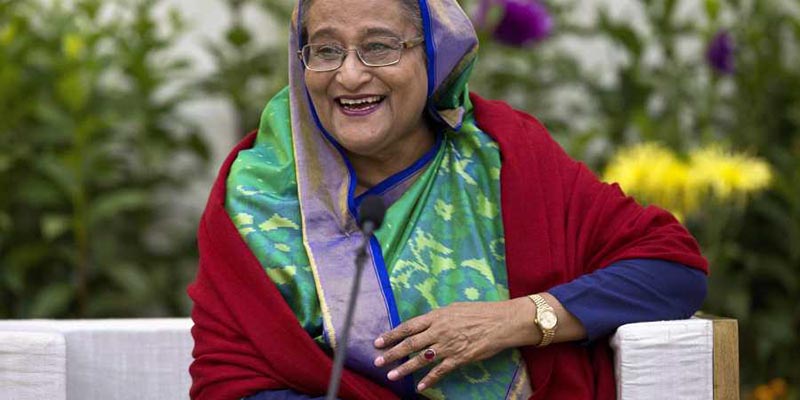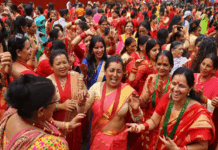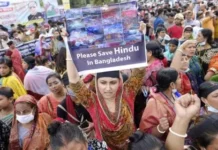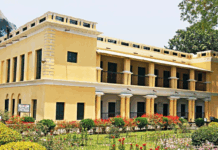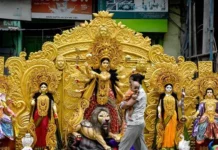DHAKA: Bangladesh’s newly-elected parliament members took oath of office on Thursday, even as jailed ex-premier Khaleda Zia’s BNP and its allies boycotted the ceremony to protest what they called “farcical and rigged” elections.
The Bangladesh Nationalist Party (BNP) won five seats and its partners in the National Unity Front (NUF) got just two as compared to 258 seats of Prime Minister Sheikh Hasina’s Awami League and 22 of her ally Jatiya Party in the recently concluded 11th general elections.
Speaker Shirin Sharmin Chaudhury, who chaired the 10th parliament, first took oath on her own as per parliamentary rules and then administered the oath of office to the Awami League MPs-elect including Hasina at the Oath Room of parliament around 11 am.
Clad in pink and ash colored jamdani saree, Hasina was seated in the front row, leading the rows of “black and white” Awami League MPs-elect.
The members of other Grand Alliance partners including former president HM Ershad’s jatiya Party, left leaning Workers Party and Jatiya Samajtantrik Dal and centre-right Bikalpa Dhara Bangladesh and Tariqat Federation and independent lawmakers were sworn in thereafter.
The Jatiya Party has won 22 seats, becoming the second largest bloc in parliament.
The seven MPs-elect of opposition NUF boycotted the ceremony. The NUF, with BNP being its key partner, has rejected the election, calling it a “farce” and demanded fresh polls under a non-party caretaker government.
Prime Minister Hasina, however, dismissed the accusations saying the opposition’s weaknesses caused their debacle though most Western countries cautiously welcomed her victory in the polls simultaneously noting the opposition allegations.
Under Bangladesh’s Constitutional provisions, MPs-elect must take oath within three months or forfeit their seats.
The BNP has sent a letter to the government seeking permission to meet Zia in jail, visibly to seek her advice about the party’s next course of actions.
Hasina is likely to be sworn in as the prime minister on January 10 for the third consecutive term and a record fourth time.
Meanwhile, uncertainty prevailed over the opposition structure in the 300-member parliament.
According to legal and parliament experts, a party needs to win at least 10 per cent of the total seats to formally get the status of an Opposition party.
The Jatiya Party on Wednesday hinted that they could emerge as an opposition in Parliament.
“We will take a decision soon whether Jatiya Party will be with the government or emerge as the parliamentary opposition,” party secretary general Moshiur Rahman Ranga told a news briefing after a three-hour-long meeting with the party leaders.
He added: “In terms of representation in Parliament after the election results, our position is second after the Awami League.”
The Jatiya Party acted simultaneously as the main opposition and partner of the ruling alliance with induction of its several lawmakers in Prime Minister Hasina’s cabinet after the 2014 elections, which the BNP had boycotted.
Critics and political analysts feared the overwhelming majority in parliament could expose Bangladesh to a authoritarian rule. PTI

